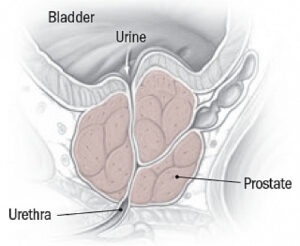You are not alone out there who is facing an irregular menstruation cycle and a person who wants to improve her fertility. Usually, people think that regular exercise and a properly balanced diet can evade irregular periods. However, it turns out that you might have relatively good eating and exercise habits while still experiencing an irregular menstrual cycle. Your way of living could be the root cause of the problem.
Fertility has become a significant concern in today’s modern world, with more than 10% of couples experiencing problems. The journey to becoming parents might be difficult at times, but know that you are not alone. It’s impossible to wait too long to become pregnant when you’re desperate to have a family of your own. Men and women can both take a few steps to improve their chances of getting pregnant. The simplest and most effective way to naturally increase fertility is to make lifestyle and dietary changes. However, there are several more strategies to increase your chances of becoming pregnant.
Let us first define what irregular periods are and how they differ from regular periods. Irregular periods occur when menstruation is irregular or occurs more or less frequently than it does in the average person. If your periods are regularly more than a week late, you may have oligomenorrhea or irregular periods.
REASONS FOR IRREGULAR PERIODS
There is a long list of reasons why we might miss our periods. Some of these are:
- Natural causes (pregnancy, breastfeeding, menopause)
- Oral contraceptives (Also known as hormonal birth control. Also referred to as “the pill”)
- Medicines (Antipsychotics, antidepressants, allergy medications, cancer chemotherapy, blood pressure drugs)
- Lifestyle (eating habits, exercise routine, stress)
- Unbalanced hormones (polycystic ovary syndrome, pituitary tumor, premature menopause, thyroid malfunction)
- Structural Oddities (scarring on the uterus, the lack of reproductive organs, or another vaginal anatomical defect)
How to Regulate Irregular Menstruation Cycle
Some treatments depend on the cause of irregular periods, but you can attempt to regain your cycle with various lifestyle changes.
Stay within your weight limit
- Your menstrual cycle can be affected by changes in your weight. Losing weight may help control your periods if you’re obese.
- Extreme weight loss or being underweight, on the other hand, can result in irregular periods. That is why it’s crucial to maintain a healthy weight.
- Besides irregular periods and higher bleeding and pain, obese women are also more prone to have painful and irregular periods than women who are a healthy weight. That is because fat cells uniquely affect hormones and insulin.
- If you think your weight is interfering with your menstrual cycle, make an appointment with your doctor. They can assist you in determining a healthy weight goal and developing a plan for either losing or increasing weight.
What to eat and avoid eating?
By not getting the proper nutrients or by eating too little, you are putting undue strain on your hypothalamus, pituitary, and adrenal glands. These glands are in charge of balancing the hormones in your body, which might impact how often you get your period. Continue reading to find out which foods to avoid and which to include in your diet.
Get sufficient fats into your diet
Increases in the levels of ovulation and hormones may help if you consume adequate fat. It appears that polyunsaturated fatty acids (PUFAs) have the most impact.
The following are some important resources:
- Salmon
- Flaxseed
- Vegetable oils
- Walnuts
You should consume 20 to 35% of your daily calories as fat. The percentage of calories from Plant-based foods should be between 5 and 10% of total calories.
Eat pineapples and papaya
Some believe that pineapple and papaya can help regulate menstruation.
- Carotene, an antioxidant found in papaya, helps to keep estrogen levels in check. This tropical fruit may help with uterine contractions as well.
- Bromelain, an enzyme found in pineapples, may help in red and white blood cell development and circulation.
Irrespective of their impact, both are nutritious whole meals that you should consume.
Get enough folate in your diet
- Taking folate during the second part of the menstrual cycle is claimed to help with regular ovulation and higher levels of the female hormone progesterone. There’s a chance this helps with fertility.
- Today, 400 micrograms (mcg) per day is the standard recommendation. Depending on your health history, your doctor may advise you to take 800 mcg or even more.
Don’t consume a lot of fiber!
Fiber has the potential to reduce levels of:
- Progesterone
- estrogen
- the hormone that causes menstruation (LH)
- the hormone that promotes hair growth (FSH)
Scientists believe that this is why women who consume a lot of fiber have a lower risk of breast cancer. These hormones are also essential in the reproductive process of the organism. If you have too much fiber in your diet, it can delay or halt your period altogether.
However, this is not universally true in the scientific community. Several studies have found that fiber does not affect ovulation or menstruation.
To acquire the recommended amount of fiber each day, adults should aim for about 25-30 grams.
Avoid the low-carbohydrate diet
- Inadequate carbohydrate intake can result in irregular or even skipped cycles (amenorrhea). Low-carb diets have been linked to thyroid dysfunction and decreased leptin levels in the body. Leptin is a hormone that is produced by fat cells and helps to regulate reproductive hormones.
- If you follow a 2,000-calorie diet, experts recommend 225 to 325 grams of carbs each day. It indicates that carbs should account for 45 to 65 percent of your total daily calorie consumption.
Regular exercise and yoga is important
- Exercise offers numerous health benefits that can help with your menstrual cycle. When used in association with other polycystic ovarian syndrome treatment options, it can assist you in reaching or maintaining a healthy weight (PCOS). PCOS may be the root of your irregular menstrual cycle.
- There’s evidence that yoga can help with menstrual symptoms like depression and anxiety, including the physical discomfort of the period. It has also been shown to improve the quality of life in women who suffer from primary dysmenorrhea (menstrual cramps). Women who suffer from primary dysmenorrhea feel agonizing anguish both before and during their menstrual cycles, which can last for several days.
Consider using dietary supplements
Certain vitamins may help with menstruation irregularity by balancing hormones or treating nutritional deficits. Before using any supplement, you should always consult with your doctor. Some over-the-counter (OTC) and prescription medicines, as well as supplements, can interact with underlying health concerns. To avoid this buy online birth control pills. Furthermore, some supplements may be unsafe to consume if you are pregnant or want to get pregnant.
The Best Natural Fertility Boosting Methods
Pregnancy is one of life’s greatest joys, but when it’s difficult or impossible to conceive naturally, individuals turn to artificial means to speed up the process. It is possible to enhance your fertility by speaking with a fertility professional. To get the appropriate care and treatment, you should call the specialist if you’ve been trying to conceive for over six months. They will do all of the required tests and screens for you.
Furthermore, holistic fertility therapies are another alternative for naturally resolving a fertility issue. If you want to increase your chances of getting pregnant, consider doing the following activities at home:
- Be more physically active. Obesity or being overweight can have a significant impact on your ability to become pregnant. Regular and moderate exercise is not only beneficial to your general health, but it can also help you maintain a healthy weight and boost your chances of becoming pregnant.
- Keep your weight under control. The amount of weight a man or woman has a significant impact on both male and females’ fertility. The best way to improve fertility and conception is to maintain a healthy weight.
- Be more relaxed and less tense. For those of you who have been trying to conceive for an extended period, you may be under considerable pressure. Stress, on the other hand, is a significant influence on conception. Make an effort to relax and remove tensions from your life to improve your chances of getting pregnant. You can increase your chances of getting pregnant by learning how to deal with stress and worry daily.
- Boost your iron consumption. Everybody’s iron intake is critical, but it’s more vital for women in their reproductive years. To boost your ovulation and fertility, you must consume iron-rich meals like a plant-based iron diet. If you don’t get enough iron from your food, consider taking a supplement.
- Refrain from consuming alcoholic beverages. If you and your partner want to start a family, but you drink a lot of alcohol, you should make an effort to reduce your consumption.
- Take in more fiber by eating more whole grains. Getting more fiber in your diet while you’re trying to get pregnant will boost your chances of getting pregnant dramatically. In addition to helping your body remove extra hormones, fiber also helps to manage your blood sugar levels.
- Make the right choice about carbohydrates. When it comes to carbs, you should be conscious of two things: the total number of carbs you consume and the types of carbs you eat daily. Women with PCOS who follow a low-carb diet see improved hormone levels, while those who avoid refined carbs have higher pregnancy success rates.
- Eat a massive breakfast in the morning. According to research, eating a large, nutritious breakfast can aid women with their reproductive issues.
- Consume foods high in antioxidants. Antioxidant-rich diets can help both men and women become more fertile. More fruits, vegetables, grains, and nuts naturally filled with excellent antioxidants like vitamins E and C and beta-carotene will help you improve fertility.





